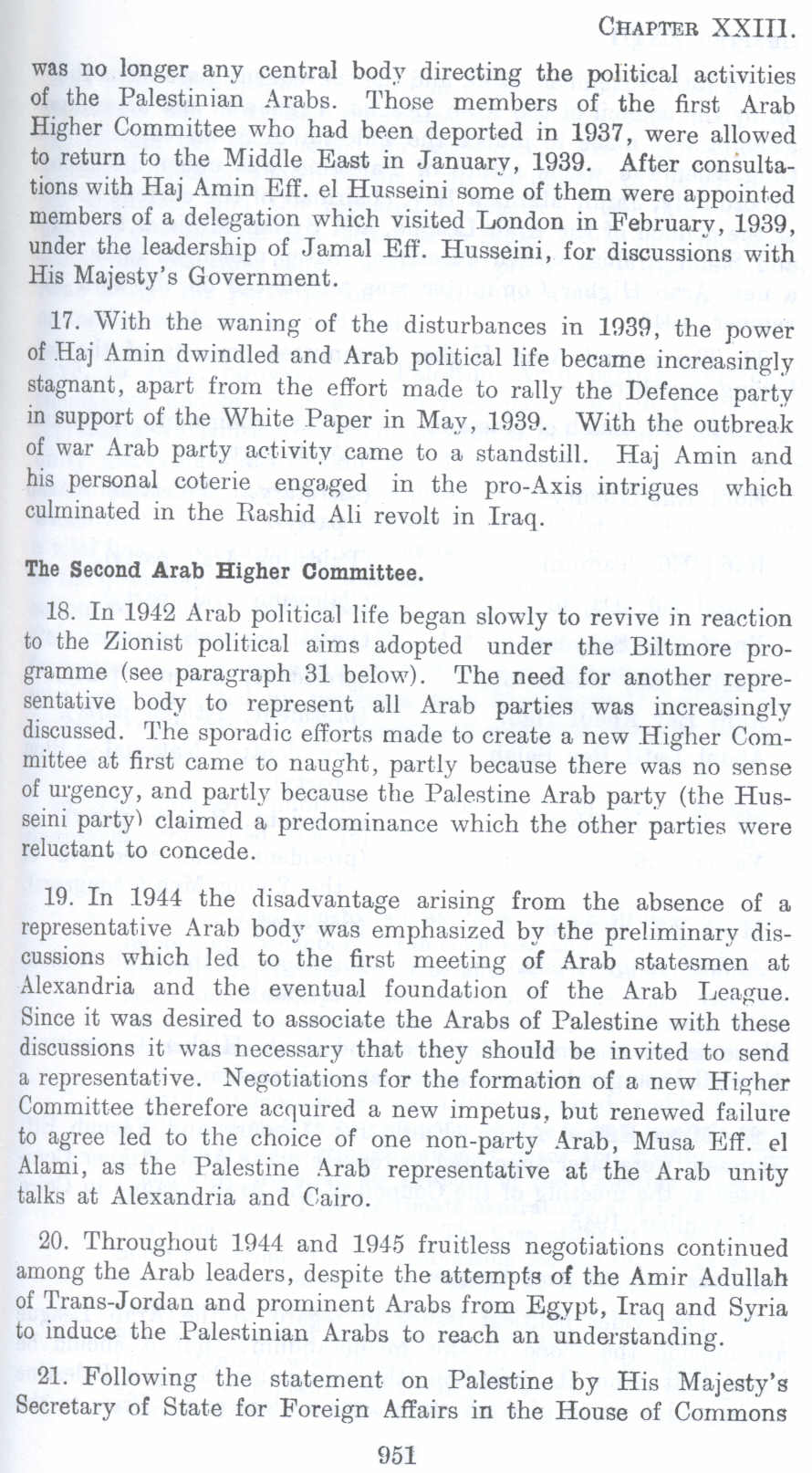| Prev | Next |  |
| Prev | Next |
| PalestineRemembered | About Us | Oral History | العربية | |
| Pictures | Zionist FAQs | Haavara | Maps | |
| Search |
| Camps |
| Districts |
| Acre |
| Baysan |
| Beersheba |
| Bethlehem |
| Gaza |
| Haifa |
| Hebron |
| Jaffa |
| Jericho |
| Jerusalem |
| Jinin |
| Nablus |
| Nazareth |
| Ramallah |
| al-Ramla |
| Safad |
| Tiberias |
| Tulkarm |
| Donate |
| Contact |
| Profile |
| Videos |
British Mandate: A Survey of Palestine: Volume II - Page 951 |
Disclaimer
The above documents, article, interviews, movies, podcasts, or stories reflects solely the research and opinions of its authors. PalestineRemembered.com makes its best effort to validate its contents.


Post Your Comment
*It should be NOTED that your email address won't be shared, and all communications between members will be routed via the website's mail server.
was no longer any central body directing the political activities of the Palestinian Arabs. Those members of the first Arab Higher Committee who had been deported in 1937, were allowed to return to the Middle East in January, 1939. After consultations with Haj Amin Eff. el Husseini some of them were appointed members of a delegation which visited London in February, 1939, under the leadership of Jamal Elf. Husseini, for discussions with His Majesty's Government.
17. With the waning of the disturbances in l!J39, the power of Haj Amin dwindled and Arab political life became increasingly stagnant, apart from the effort made to rally the Defence party in support of the White Paper in May, 1939. With the outbreak of war Arab party activity came to a standstill. Haj Amin and his personal coterie engaged in the pro-Axis intrigues which culminated in the Rashid Ali revolt in Iraq.
The Second Arab Higher Committee.
18. In 1942 Arab political life began slowly to revive in reaction to the Zionist political aims adopted under the Biltmore programme (see paragraph 31 below). The need for another representative body to represent all Arab parties was increasingly discussed. The sporadic efforts made to create a new Higher Committee at first came to naught, partly because there was no sense of urgency, and partly because the Palestine Arab party (the Husseini party) claimed a predominance which the other parties were reluctant to concede.
19. In 1944 the disadvantage arising from the absence of a representative Arab body was emphasized by the preliminary discussions which led to the first meeting of Arab statesmen at Alexandria and the eventual foundation of the Arab League. Since it was desired to associate the Arabs of Palestine with these discussions it was necessary that they should be invited to send a representative. Negotiations for the formation of a new Higher Committee therefore acquired a new impetus, but renewed failure to agree led to the choice of one non-party Arab, Musa Ef]. el Alami, as the Palestine Arab representative at the Arab nnity talks at Alexandria and Cairo.
20. Throughout 1944 and 1945 fruitless negotiations continued among the Arab leaders, despite the attempts of the Amir Adullah of Trans-Jordan and prominent Arabs from Egypt, Iraq and Syria to induce the Palestinian Arabs to reach an understanding.
21. Following the statement on Palestine by His Majesty's Secretary of State for Foreign Affairs in the House of Commons
951